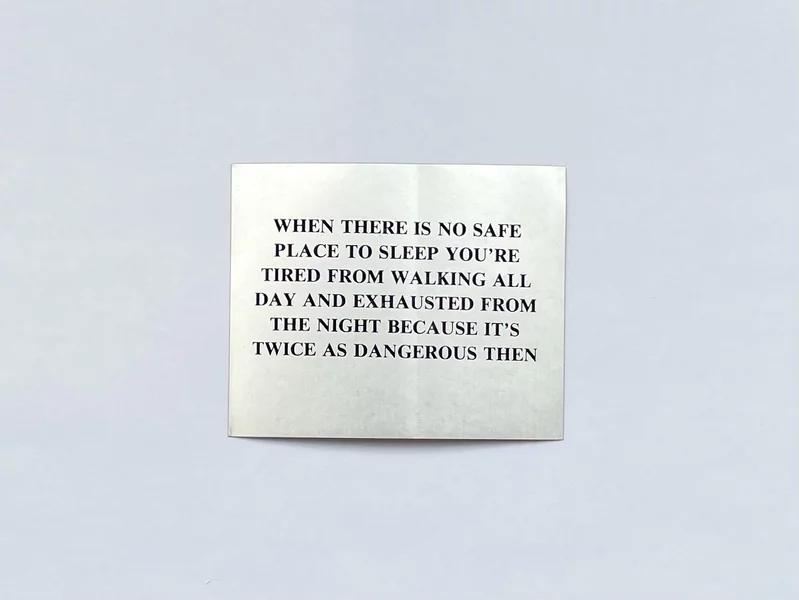Jenny Holzer's Survival Series (1983-1985) is a continuation of her exploration of the impact of language and public dissemination of text, a theme central to her body of work. This series, created during a period when Holzer was experimenting with new media and forms of presentation, features a collection of somber and urgent statements that reflect on human responses to various environments—political, social, psychological, and physical. These statements were initially designed for display on electronic LED signs, allowing Holzer to engage with the public in dynamic and impactful ways. The "Survival Series" marks a shift towards a more personal and urgent tone, highlighting the realities of everyday life and survival in a complex world (Artland Magazine).
Holzer's work is known for its thought-provoking and cutting language, which aims to generate conversations around social justice issues. The "Survival Series" extends this mission, questioning how individuals navigate their existence within broader societal and political frameworks. Originally created for electronic signs, Holzer later expanded the series to include other forms such as stone benches, bringing the messages into physical and permanent forms within public and private spaces (Cheekwood).
The phrases from the "Survival Series" have been inscribed on marble and granite benches, commissioned for specific locations and exhibitions, transforming these pieces into both functional objects and contemplative art installations. The text, hand-chiseled into the stone, invites viewers to sit and reflect on the messages and their implications, integrating Holzer's provocative language with the physical experience of the viewer in a shared environment (Cheekwood) (SFMOMA).
Holzer's innovative use of LED technology and her transition to permanent materials like stone illustrate her versatile approach to art-making and her commitment to engaging with public spaces as a means of communication. The "Survival Series" stands as a testament to Holzer's enduring fascination with the power of words to challenge, confront, and engage viewers in critical reflection on the conditions of contemporary life (The Art Story).

